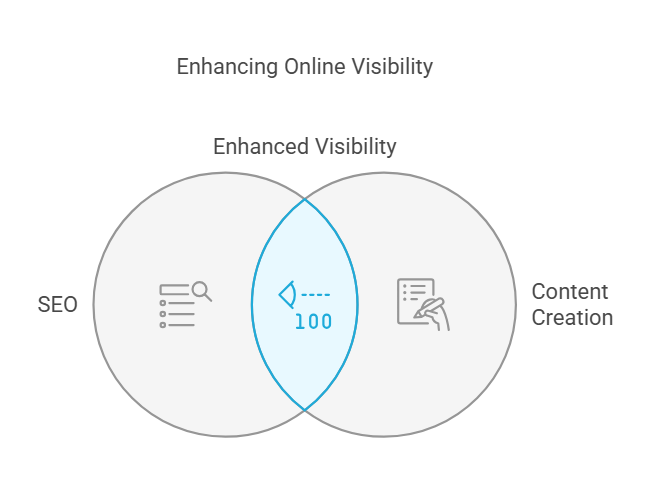Keyword
Keyword In the ever-evolving landscape of search engine optimization (SEO), focus keywords remain a cornerstone of effective digital marketing strategies. These specific words or phrases are the bridge between what users search for and the content your website offers. By mastering the art of using focus keywords, you can significantly improve your website’s visibility and rank higher in search engine results pages (SERPs).

What Are Focus Keywords?
Focus keywords are the primary terms or phrases that define the essence of your content. When users type these words into search engines, your content should ideally appear in the results. For example, if your business specializes in handmade candles, keywords like “handmade candles,” “organic candles,” or “scented candles” could serve as focus keywords.
Why Are Focus Keywords Important?
Focus keywords are essential for several reasons:
- Enhanced Visibility: They help search engines understand what your content is about, making it easier for users to find you.
- Audience Targeting: They attract the right audience by matching user intent.
- Improved Rankings: Well-optimized content with strategic keyword placement tends to rank higher.
- Better Engagement: Relevant keywords increase the likelihood of users staying on your page longer.
How to Identify the Right Focus Keywords
Finding the right focus keywords requires research and analysis. Here’s how you can do it:
- Understand Your Audience: Use tools like Google Analytics to determine what your audience is searching for.
- Keyword Research Tools: Leverage platforms like Google Keyword Planner, SEMrush, or Ahrefs to discover high-volume, low-competition keywords.
- Analyze Competitors: Check what keywords your competitors are ranking for to identify gaps and opportunities.
- Consider Long-Tail Keywords: These are specific phrases that may have lower search volume but higher conversion rates. For instance, instead of “candles,” opt for “handmade soy candles for aromatherapy.”
Best Practices for Using Focus Keywords
To maximize the impact of your focus keywords, follow these best practices:
- Place Keywords Strategically:
- Title: Incorporate the focus keyword into your headline.
- Meta Description: Use the keyword in the meta description to improve click-through rates.
- URL: Include the keyword in your page URL.
- Headers: Utilize the keyword in H1, H2, and H3 tags.
- First Paragraph: Introduce the focus keyword early in your content.
- Maintain Natural Flow: Avoid keyword stuffing. Your content should read naturally and provide value to the reader.
- Optimize Images: Use the focus keyword in image file names and alt text to boost your SEO.
- Internal Linking: Link to other relevant pages on your site using anchor text that includes the focus keyword.
- Update Regularly: SEO trends change, so revisit your content periodically to refine your focus keywords.
Mistakes to Avoid
While using focus keywords, steer clear of these common pitfalls:
- Overstuffing Keywords: This can lead to penalties from search engines.
- Ignoring User Intent: Ensure your keywords align with what users are genuinely looking for.
- Neglecting Mobile Optimization: With mobile-first indexing, your content must be mobile-friendly.
- Focusing Solely on High-Volume Keywords: Balance between high-volume and long-tail keywords for better results.
Tools to Optimize Focus Keywords
Numerous tools can help you analyze and optimize your focus keywords:
- Yoast SEO: Ideal for WordPress users, it provides keyword optimization suggestions.
- Google Trends: Tracks keyword popularity over time.
- SEMrush: Offers detailed keyword analysis and competitor insights.
- Ubersuggest: Provides keyword suggestions and SEO metrics.
- Moz Keyword Explorer: Helps in finding profitable keywords with low competition.
Measuring the Success of Focus Keywords
To evaluate the effectiveness of your focus keywords, monitor these metrics:
- Search Rankings: Track your position for specific keywords using tools like Ahrefs or SEMrush.
- Organic Traffic: Measure the increase in traffic originating from organic search.
- Bounce Rate: A lower bounce rate indicates that users find your content relevant.
- Conversion Rate: Higher conversions show that the focus keyword is attracting the right audience.
Conclusion
Focus keywords are a fundamental element of any successful SEO strategy. By choosing the right keywords, placing them strategically, and avoiding common mistakes, you can enhance your website’s visibility and attract your target audience. Remember, SEO is an ongoing process, so continue to refine your approach to stay ahead of the competition.
Meta Description
Boost your website’s SEO with effective focus keyword strategies. Learn how to identify, optimize, and measure the impact of focus keywords to attract the right audience.
